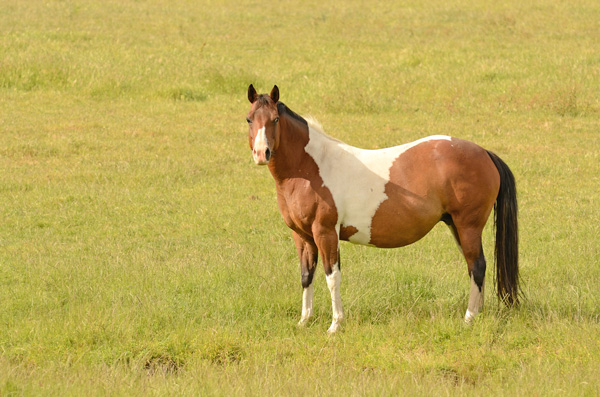
Recently, I saw the term “n-3 PUFA” used in an article about supplementing fat for insulin-resistant horses. It discussed a study performed at Colorado State University where “n-3 PUFAs” were shown to significantly reduce insulin levels. Great news! But what in the world is an n-3 PUFA?
First, PUFA stands for “polyunsaturated fatty acid.” All fatty substances contain a combination, in varying amounts, of three types of fatty acids:
· Saturated—the kind you’d find in butter, beef, or coconut oil
· Monounsaturated (abbreviated MUFA)—found in high amounts in olive oil and rice bran oil
· Polyunsaturated (abbreviated PUFA)—more complex molecule found in most plants and in fish
There are two main types of PUFAs, which are named based on their chemical structure—omega 3 or omega 6. The Greek letter, omega, is often symbolized in scientific literature by an “n” followed by the number.
The omega 6 PUFA, symbolized by n-6 and known as linoleic acid, is important because the horse cannot produce it; therefore, it is considered “essential” and must be in the diet. A problem occurs when the diet contains too much; high amounts of linoleic acid (an n-6 PUFA) can lead to inflammation. Oils from soybean, corn, safflower, sunflower and wheat germ are very high in this specific fatty acid.
Omega 3 (n-3) PUFAs are found in three forms:
· Eicosapentaenoic acid (EPA)—found in fish oils
· Docosahexaenoic acid (DHA)—also found in fish oils
· Alpha linolenic acid (ALA)—found in high amounts in flax, chia and fresh grasses.
ALA is also “essential” and can be converted to the other two n-3 PUFAs.
Back to the good news…While all fat is high in calories, foods that are high in n-3 PUFAs can lower blood insulin levels, which helps reduce fat storage and lessen the risk of laminitis.
For more about fats, visit library at www.GettyEquineNutrition.com and read “Fat is Fat, Right? Check Your Omegas!” And keep learning by listening to the recorded teleseminar, “A Clear View of Fat – Types, Sources, and Benefits.”
Juliet M. Getty, PhD, is an internationally respected, independent equine nutritionist who believes that optimizing horse health comes from understanding how the horse’s physiology and instincts determine the correct feeding and nutrition practices. She is the Contributing Nutrition Editor for the Horse Journal, and is available for private consultations and speaking engagements. Keep learning with Getty at www.gettyequinenutrition.com, sign up for her informative, free monthly newsletter, Forage for Thought; browse her library of reference articles; search her nutrition forum; and purchase recordings of her informative teleseminars. Getty will be presenting at Equine Affaire in West Springfield, Massachusetts, on Nov. 9 and 10. For schedules and other information about Equine Affaire, visit www.equineaffaire.com/massachusetts. Contact Getty directly at gettyequinenutrition@gmail.com.


